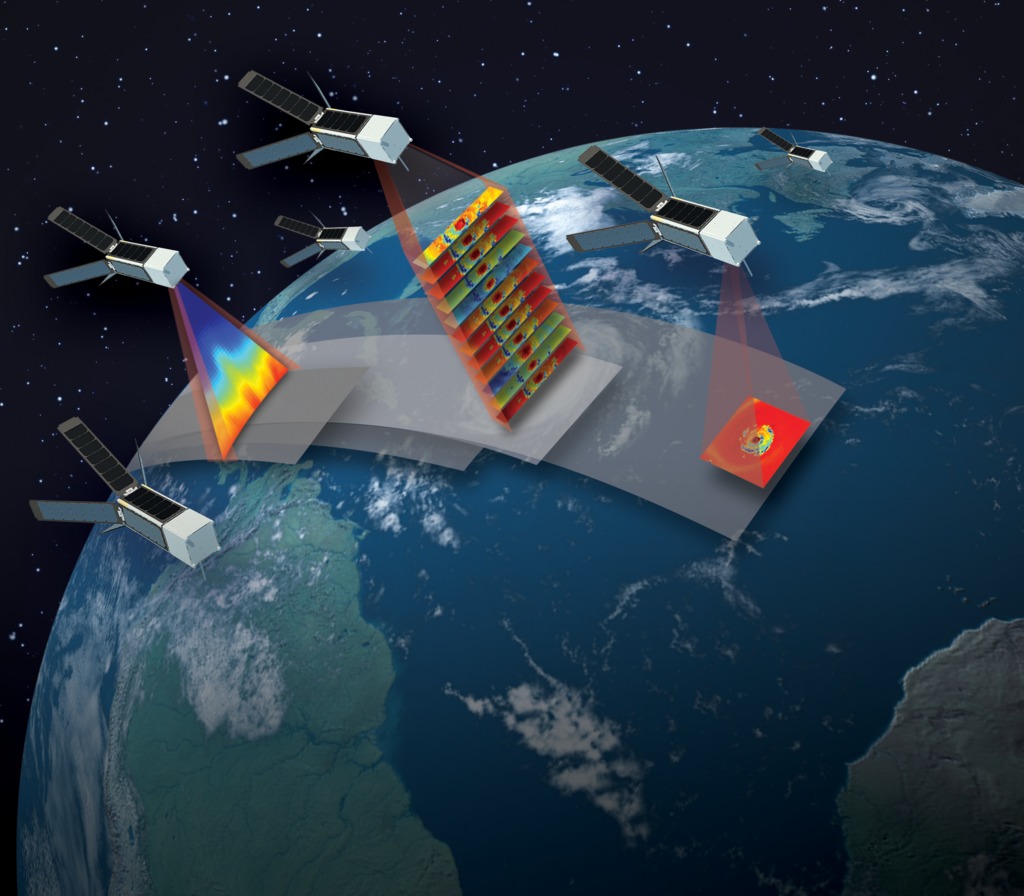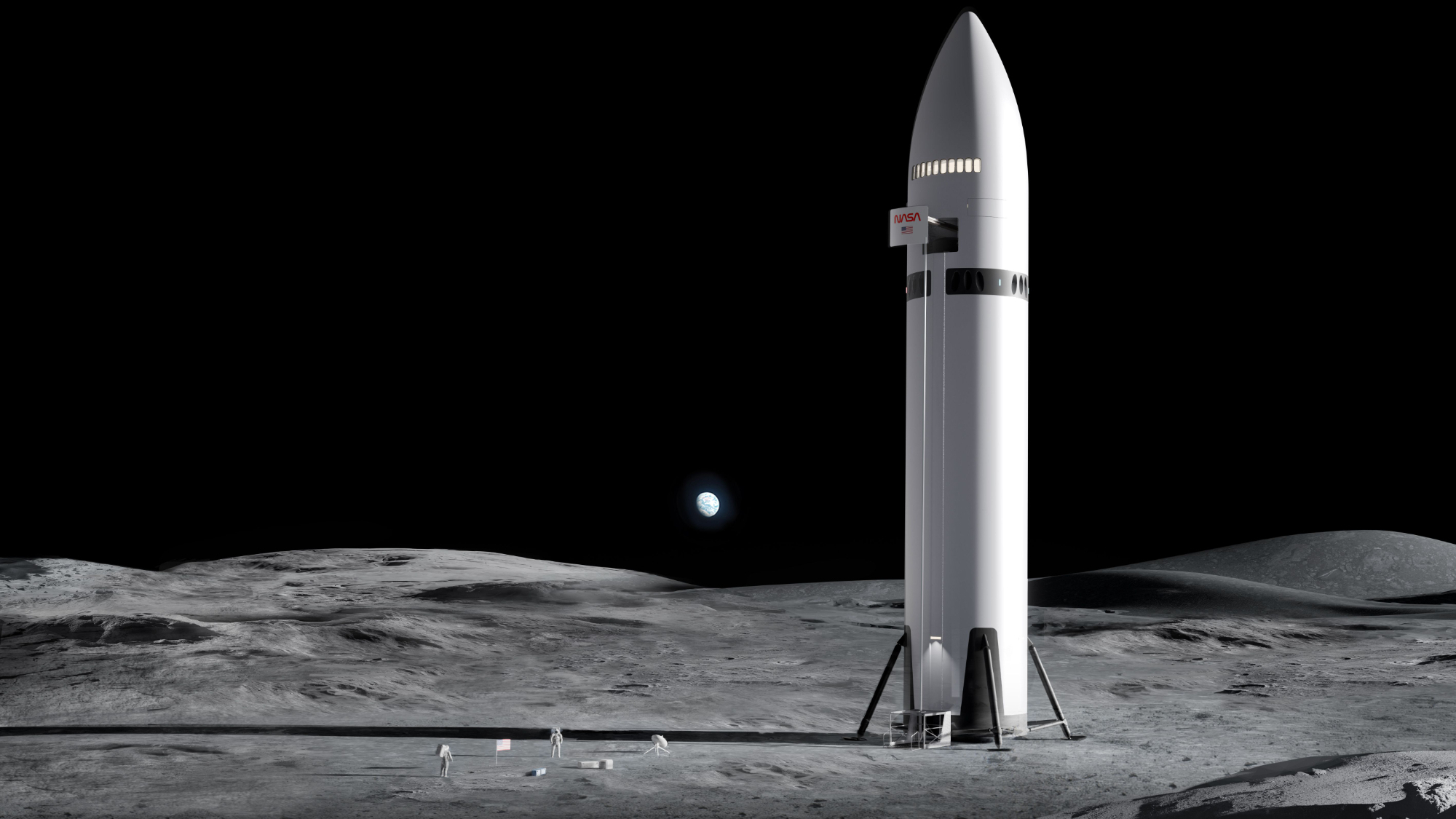Astra rocket lost 2 NASA satellites due to 'runaway' cooling system error
The company is no longer flying the flawed Rocket 3 line that made its last flight in June 2022, when it failed to deliver two NASA cubesats to orbit after a second-stage failure.

Breaking space news, the latest updates on rocket launches, skywatching events and more!
You are now subscribed
Your newsletter sign-up was successful
Want to add more newsletters?

Delivered daily
Daily Newsletter
Breaking space news, the latest updates on rocket launches, skywatching events and more!

Once a month
Watch This Space
Sign up to our monthly entertainment newsletter to keep up with all our coverage of the latest sci-fi and space movies, tv shows, games and books.

Once a week
Night Sky This Week
Discover this week's must-see night sky events, moon phases, and stunning astrophotos. Sign up for our skywatching newsletter and explore the universe with us!

Twice a month
Strange New Words
Space.com's Sci-Fi Reader's Club. Read a sci-fi short story every month and join a virtual community of fellow science fiction fans!
A "runaway event" caused the catastrophic loss of Astra's final Rocket 3 launch last June, the company announced Wednesday (March 1).
Astra's Launch Vehicle 0010 lost two NASA hurricane-tracking cubesats on June 12, 2022 after a second-stage failure of its booster, called Rocket 3.3. The overall Rocket 3 line, facing a reported five failures in seven launches, was canceled in August; Astra is working to make improvements for a more powerful Rocket 4 version.
"This was easily the most complex investigation that Astra has ever conducted," read a joint statement concerning the mishap from Astra co-founder Adam London, along with head of mission assurance Andrew Griggs.
NASA had tapped Astra to launch six Time-Resolved Observations of Precipitation structure and storm Intensity with a Constellation of Smallsats (TROPICS) cubesats in a $7.95 million deal for the company. After the rocket's loss, NASA said in October it would seek alternate vendors to get all six satellites to space by end of 2023.
Video: Watch Astra's LV0010 rocket launch failure with NASA satellites
Initial analysis showed the flawed rocket stage burned through its fuel supply more quickly than expected. With diminished fuel available, the upper stage could only reach 80% of the velocity (speed) required to achieve orbit, meaning that NASA's satellites could not reach their destination. But learning how this problem happened took months of investigation, Astra outlined in the lengthy statement.
The upper stage burned through its fuel too quickly because of a flaw in the combustion chamber wall that created a rupture or "burn-through," investigators determined. The principle flaw was in the rocket's regenerative cooling system, which keeps the chamber wall cool during the extreme heating experienced during rocket launches.
Breaking space news, the latest updates on rocket launches, skywatching events and more!
"Most liquid rocket engines require cooling to prevent the very hot combustion gases from melting the chamber wall and causing the engine to fail," Astra officials wrote.
"In a regeneratively-cooled rocket engine, cooling is achieved by routing the fuel through many cooling channels, embedded within the combustion chamber wall. This allows heat from the wall to be absorbed into the flowing fuel, keeping the wall at a low enough temperature to prevent failure."
Related: How rockets work: A complete guide
In the case of the TROPICS-1 launch failure, the primary cause of this diminished engine chamber cooling was a partial blockage of the fuel injector. The blockage decreased the rate at which fuel moved through the cooling chambers. With less fuel available in the cooling chambers, not as much heat could be absorbed, which led to the combustion chamber wall heating up.
Eventually, the wall temperature got hotter than the boiling point of the fuel. As the fuel heated up, its ability to cool was "significantly and adversely impacted" and the wall temperature soared so high that a portion of it failed. Part of the fuel then flowed out of the cooling system and into the combustion chamber, "essentially wasting it," the Astra officials said.
But there were more problems as well. A "small amount" of thermal barrier coating was missing from a portion of the upper stage engine's combustion chamber. Not all of the chamber was coated, as engineers had at first thought that wasn't required. "We had underestimated the need for coating in this region under flight conditions," the Astra officials said.
Finding the source of the fuel injector blockage also took some time, but the ultimate cause was issues with gaseous fuel. Ground testing showed that the fuel never got to boiling or even close to boiling in the cooling channels, but again, differences showed up during the flawed flight of Rocket 3.
The margin of error between boiling and non-boiling fuel temperature was much narrower than expected, in part due to the high-vapor-pressure type of kerosene fuel used, and in part due to the engine design.
For example: Engineers found that in flight, the exhaust jet inside the rocket nozzle unexpectedly expanded and attached to the inside of the nozzle due to vacuum conditions high in the atmosphere. Because this phenomenon was not observed during ground testing, the fuel was heated at a higher temperature than the engine was designed for, contributing to the failure.
Rocket 4, the Astra officials added, uses a different upper stage engine design and a different fuel "that completely eliminate the causes of this mishap."
Rocket 4's design will also include additional protections against future failures, like "upgrading our helium diffuser design to prevent frothing in the propellant tanks and ingestion of helium into the engine." This was not an issue on Rocket 3.3, but the investigation determined the rocket's design was susceptible to the issue.
The company is also working to improve "processes, systems, and culture to increase the reliability of our fourth generation rocket."
Some of the company changes with regards to personnel include "an overhauled design review process, a more robust test-like-you-fly qualification process, and a refreshed set of Astra core values," the statement added.
Elizabeth Howell is the co-author of "Why Am I Taller?" (ECW Press, 2022; with Canadian astronaut Dave Williams), a book about space medicine. Follow her on Twitter @howellspace. Follow us on Twitter @Spacedotcom or Facebook.

Elizabeth Howell (she/her), Ph.D., was a staff writer in the spaceflight channel between 2022 and 2024 specializing in Canadian space news. She was contributing writer for Space.com for 10 years from 2012 to 2024. Elizabeth's reporting includes multiple exclusives with the White House, leading world coverage about a lost-and-found space tomato on the International Space Station, witnessing five human spaceflight launches on two continents, flying parabolic, working inside a spacesuit, and participating in a simulated Mars mission. Her latest book, "Why Am I Taller?" (ECW Press, 2022) is co-written with astronaut Dave Williams.

